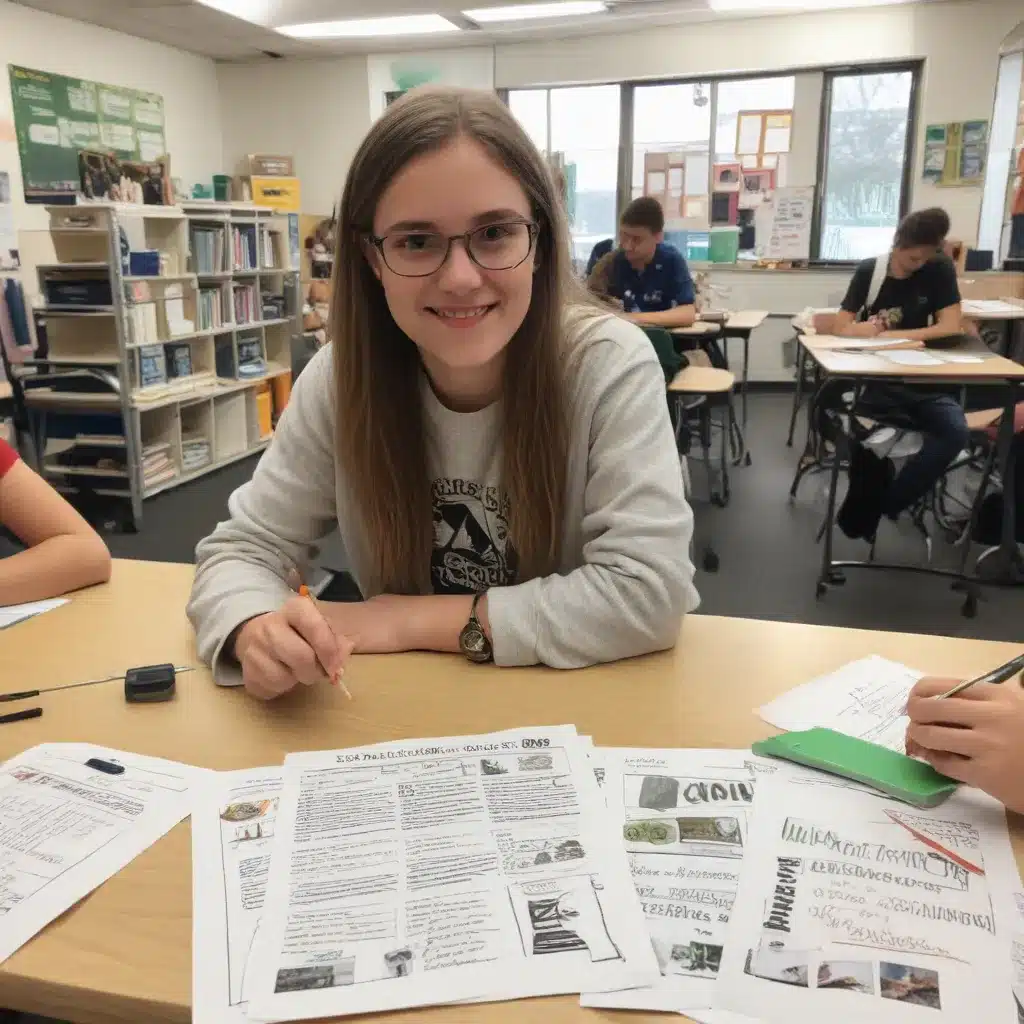
Exploring PBL, Reflection, Student Identity, and Sustainability in Ginie
Harnessing Project-Based Learning and Reflective Practices for Sustainable Impact
In the pursuit of fostering meaningful, lasting change, educators are increasingly turning to project-based learning (PBL) and reflective practices as powerful tools. This approach holds particular promise when it comes to nurturing students’ connection to sustainability and cultivating their identities as change-makers.
At Stanley Park High School, we recognize the immense potential of these strategies, and we are excited to share insights from the work of Ginie Servant-Mikols, an inspiring educator and researcher whose work has deeply informed our own sustainability initiatives.
Harnessing the Power of Place-Based Learning
Servant-Mikols’ research has highlighted the value of place-based learning, which encourages students to deeply engage with their local environment and communities. One particularly innovative approach she describes involves creating “soundscapes” – students spread out in a city, recording the various sounds they hear and sharing them in a group chat.
This simple exercise not only encourages careful observation, but also allows students to collectively build a rich, multisensory impression of their surroundings. By tuning in to the unique rhythms and textures of their local context, students cultivate a stronger sense of connection and stewardship.
At Stanley Park High, we’ve been inspired to adapt this concept, challenging our students to document the sights, sounds, and stories of our local park. Through this process, they’ve developed a deeper appreciation for the delicate ecosystems and community initiatives that shape this precious green space. Armed with this intimate knowledge, they’re better equipped to identify opportunities for positive change.
Fostering Reflective Practice for Personal Growth
Servant-Mikols’ work also emphasizes the critical role of reflection in sustainability education. She suggests that the most impactful learning often occurs during formative periods, when students are removed from their everyday environments and given space to contemplate their values, identities, and roles as change-agents.
One powerful exercise Servant-Mikols describes involves students “walking around as the leader they want to be in 15 years’ time.” By embodying their aspirational selves, students gain crucial insights into their current strengths, weaknesses, and areas for growth. This reflective practice encourages them to develop a more intentional, self-aware approach to their personal and professional development.
At Stanley Park High, we’ve incorporated similar reflective activities into our PBL curriculum, challenging students to explore their evolving identities and their visions for the future. By creating structured opportunities for self-reflection, we’ve seen our students develop a stronger sense of purpose, empowering them to make more mindful choices in service of their values and communities.
Navigating the Tensions of Sustainability Education
Servant-Mikols’ research also sheds light on the complex psychological and social dynamics that can arise in sustainability education. She notes that students often struggle to reconcile their middle-class aspirations (such as international travel and material comforts) with their growing environmental consciousness. This tension can lead to coping strategies like “threat reduction,” “bargaining,” and a misplaced faith in future technological solutions.
At Stanley Park High, we’ve been mindful of these dynamics, working to ensure that our PBL projects don’t inadvertently reinforce a narrow, technocratic perspective on sustainability. Instead, we’ve emphasized the importance of systems thinking, challenging students to grapple with the deeper societal and cultural shifts required to create a truly sustainable future.
By encouraging critical reflection and a holistic understanding of sustainability, we’ve found that our students are better equipped to navigate these dilemmas and develop more integrated, authentic responses. They’re less inclined to view sustainability as a series of individual trade-offs or a burden to be offloaded onto future generations, and more as an opportunity to reimagine their roles and responsibilities as global citizens.
Building Resilience through Community Engagement
Servant-Mikols’ work also highlights the value of community engagement in sustainability education. She suggests that by connecting students with local, place-based initiatives, we can help them develop a stronger sense of agency and belonging – crucial ingredients for resilience in the face of complex global challenges.
At Stanley Park High, we’ve embraced this principle, embedding our PBL projects within the fabric of our local community. For example, our students have collaborated with urban gardening collectives to design and implement sustainable food production systems, and have worked with community activists to raise awareness about biodiversity conservation efforts in our park.
Through these hands-on experiences, our students have not only gained practical skills and knowledge, but have also forged meaningful connections with their neighbors and local stakeholders. This has fostered a profound sense of ownership and commitment, empowering them to continue their sustainability work long after they’ve left our school’s halls.
Conclusion: Nurturing a New Generation of Change-Makers
As we navigate the urgent challenges of our time, the lessons gleaned from Ginie Servant-Mikols’ work offer a powerful roadmap for educators seeking to cultivate a new generation of sustainability champions. By harnessing the potential of project-based learning, reflective practices, and community engagement, we can help our students develop the knowledge, skills, and mindsets necessary to drive meaningful, lasting change.
At Stanley Park High, we’re excited to continue our journey of sustainability education, always striving to provide our students with the tools and support they need to become the leaders of tomorrow. We invite you to join us in this vital work, as we collectively shape a future that is more just, equitable, and in harmony with our planet.
For more information on sustainability initiatives and resources at Stanley Park High School, please visit our website at https://www.stanleyparkhigh.co.uk/.

